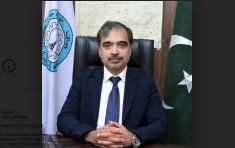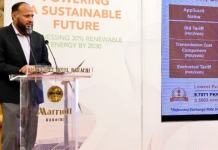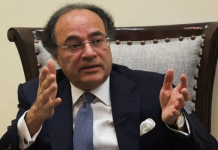DNA
ISLAMABAD, OCT 15: Stressing the need for an aggressive marketing plan to exploit the huge opportunity of enhancing exports to the EU countries, the Pakistan Industrial and Traders Associations Front (PIAF) has welcomed the European Union’s decision to retain the GSP plus status for Pakistan for another four years till 2027.
PIAF Chairman Faheemur Rehman Saigol said that GSP Plus status holds paramount importance for Pakistan’s economy as it has played an important role in expansion of multilateral trade. He said that the GSP Plus status, which Pakistan has enjoyed in the past, has significantly contributed to enhancing our export potential and economic prosperity.
He said that the GSP Plus status offers developing countries duty-free or reduced-tariff access to the EU market for over 6,000 products. It is a significant opportunity for Pakistan to boost its exports and create jobs, he added.
He appreciated the unwavering efforts of the government in advocating for this extension, further strengthening trade relations and fostering economic growth for our nation.
According to the trade statistics from ITC World Trademap, Pakistan’s exports to EU, which were around 6.3 billion dollars in 2013, have increased over the time to 11.3 billion dollars in 2022, primarily due to the deeper market access provided by European Union under GSP Plus.
Faheemur Rehman Saigol said that this essentially meant that due to GSP Plus, the European Union was by far the biggest destination for Pakistan’s exports as more than 30 percent of our exports reach EU market.
He said that this privilege has played a pivotal role in boosting our export sector, particularly in textiles, apparel and other key industries. The GSP Plus status has not only bolstered our economic prospects but has also supported job creation and sustainable development within the country.
As looking ahead, the extension of the GSP program until 2027 presents an exceptional opportunity for Pakistan to further elevate its trade relations with the European Union. Similarly the PIAF believed that by leveraging this extended GSP status, Pakistan can diversify its export base and explore new markets, thus amplifying the growth trajectory of our nation.
He warned that Pakistan is not making full use of the GSP Plus status due to a number of regulatory obstacles. These include complex customs procedures, lack of transparency, and inadequate infrastructure.
He called on the government to take urgent steps to remove these obstacles and make it easier for businesses to export to the EU. This would help Pakistan to capitalize on the GSP Plus status and boost its exports.
One key area where the government can take action is to simplify customs procedures. The current system is complex and time-consuming, which can deter businesses from exporting. The government should introduce a single-window system to streamline the customs process and make it easier for businesses to comply with regulations.
He said that the textile sector had been the main driver of the economy for the last 50 years in terms of foreign currency earnings and jobs creation. There is no alternative industry or service sector other than textile that has the potential to benefit the economy with foreign currency earnings and new jobs creation. We have not made any marketing plan before and after granting of the GSP facility. He further said a close consultation with the stakeholders needed to determine issues being confronted by the industry and then to suggest measures to ensure its viability and competitiveness in the international market.

















